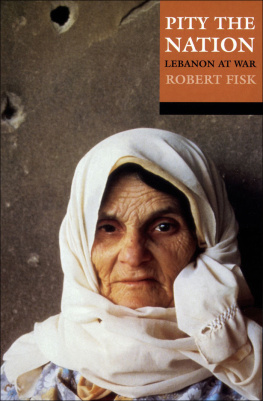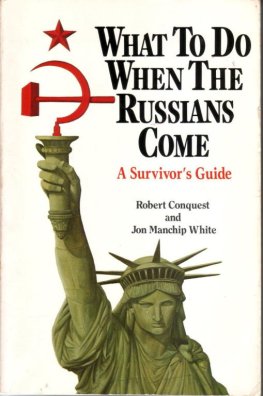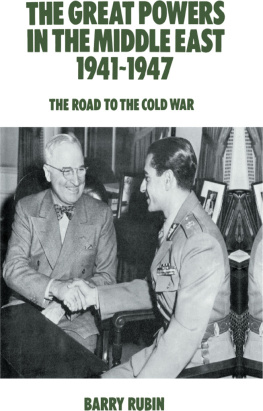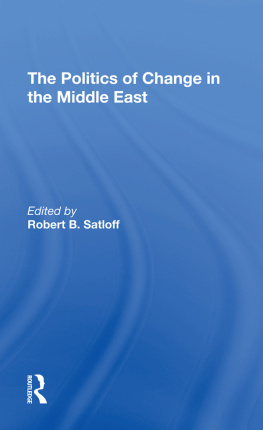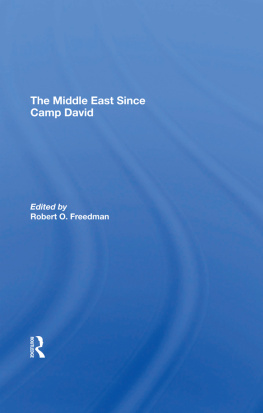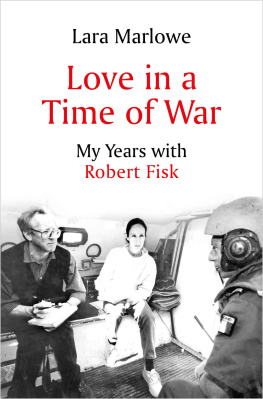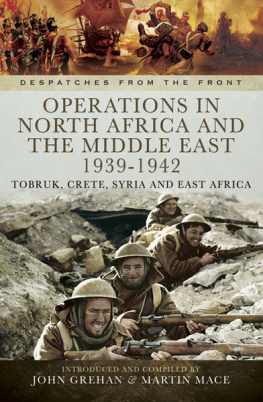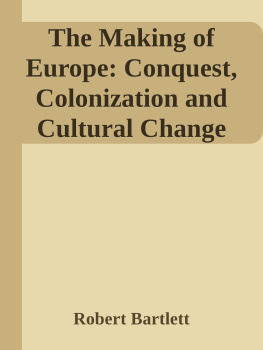Robert Fisk - The Great War for Civilisation: The Conquest of the Middle East
Here you can read online Robert Fisk - The Great War for Civilisation: The Conquest of the Middle East full text of the book (entire story) in english for free. Download pdf and epub, get meaning, cover and reviews about this ebook. year: 2007, publisher: Vintage Books, genre: Science / Politics. Description of the work, (preface) as well as reviews are available. Best literature library LitArk.com created for fans of good reading and offers a wide selection of genres:
Romance novel
Science fiction
Adventure
Detective
Science
History
Home and family
Prose
Art
Politics
Computer
Non-fiction
Religion
Business
Children
Humor
Choose a favorite category and find really read worthwhile books. Enjoy immersion in the world of imagination, feel the emotions of the characters or learn something new for yourself, make an fascinating discovery.

- Book:The Great War for Civilisation: The Conquest of the Middle East
- Author:
- Publisher:Vintage Books
- Genre:
- Year:2007
- Rating:5 / 5
- Favourites:Add to favourites
- Your mark:
- 100
- 1
- 2
- 3
- 4
- 5
The Great War for Civilisation: The Conquest of the Middle East: summary, description and annotation
We offer to read an annotation, description, summary or preface (depends on what the author of the book "The Great War for Civilisation: The Conquest of the Middle East" wrote himself). If you haven't found the necessary information about the book — write in the comments, we will try to find it.
The Great War for Civilisation: The Conquest of the Middle East — read online for free the complete book (whole text) full work
Below is the text of the book, divided by pages. System saving the place of the last page read, allows you to conveniently read the book "The Great War for Civilisation: The Conquest of the Middle East" online for free, without having to search again every time where you left off. Put a bookmark, and you can go to the page where you finished reading at any time.
Font size:
Interval:
Bookmark:
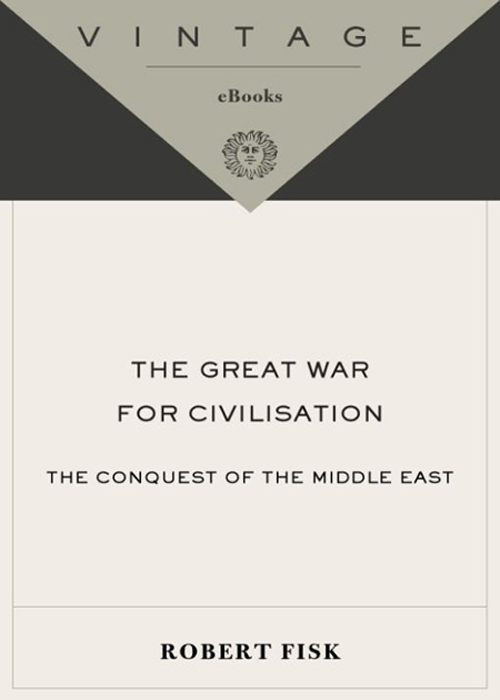
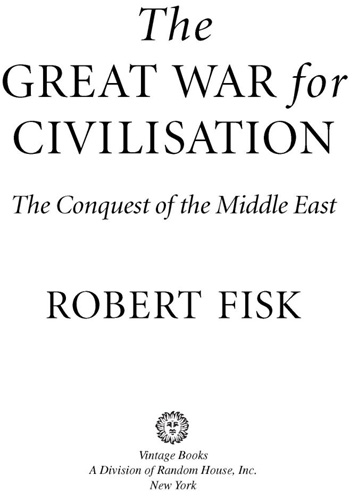
Table of Contents
To Nelofer
and for Bill and Peggy,
who taught me to love books and history
ACCLAIM FOR ROBERT FISKS The GREAT WAR for CIVILISATION
An epic account... a rich tapestry of the contemporary Middle East [and an] engagingly thorough tour of the regions turmoil. Newsweek International
Essential.... Fisk is unapologetic, engagedand so this is history as seen through the eyes of people he feels have been underrepresented rather than through various governments that attempt to shape it into public narrative. San Francisco Chronicle
Compelling... entertaining... extraordinarily ambitious.... A full-throttle account of the life of a war correspondent.... Fisk has a thousand amazing stories... [and his] eyewitness reports from the killing fields are more than just bang-bang: They are implacable and indispensable documents, grim reminders of what actually happens when nations go to war. And his devastating analysis of the reasons for those wars exposes the sins not just of the West, but of the Arab world as well.... His cold-blooded clarity is essential. In this blinkered and timorous age, we need more Robert Fisks. Salon
[The Great War for Civilisation is] notable for [its] depth of observation and insight and for the vividness of [its] descriptions of particular events and people. [Fisks] extraordinarily readable book depicts a vast historical landscape.... For all his erudition and his passion for the subject, Fisk is primarily a journalist, and his book, among many other things, is an important account of what a dedicated journalist actually does or tries to do, especially during wars.... Shocking... deeply moving. The New York Review of Books
Stories of great personal tragedy, tyranny, and few glimmers of hope. The Iran-Iraq war, the Algerian insurgency, Desert Storm... Fisk takes us through the battlefields from which he has reported. We hear the bullets, feel the desert heat. The Christian Science Monitor
[Fisk] writes with a marvelous resource of image and language. His investigative reporting is lethally painstaking. The Independent (London)
Acknowledgements
IN A BOOK OF THIS SIZEwhich includes so many years of reportingthe decision over who should be thanked is almost impossible to take. I have decided, however, that acknowledgements should be given both to those who helped me in the direct knowledge that this book was being written over the past fifteen years these are the vast majority of names listed here, including, for example, Yassir Arafat, Hizballah leader Hassan Nasrallah and Mikhail Kalashnikov, the inventor of the worlds most popular automatic rifleand a minority whose help in my past reporting shaped the text of this book before the final decision to write it.
I was also faced with the fact that those who did directly assist me in The GreatWar for Civilisation include the Good, the Bad and the Ugly. Can I place a suicide bombers father alongside a Western humanitarian worker, or a heroic Iraqi who was tortured after resisting Saddam Husseins nuclear ambitions in the same column as a man who handed his unsuspecting pregnant girlfriend a bomb to take onto an aircraft? Should the late Margaret Hassan, so cruelly murdered in Iraq, stand on the same page as Algerias exterminator interior minister?
The most extreme example of this problem is Osama bin Laden. In my last two conversations with him, he knew I was writing this book and clearly spoke in that knowledge. So should a man held responsible for the greatest international crime against humanity in the Western world be dignified with an entry? Since his comments and thoughts were crucial to parts of the text, I place this on record. But he does not appear below. Others do.
So, in alphabetical order, here are those who must be thanked for their help, enthusiasm and disclosures over the past fifteen years and more. For guidance to the reader, some are listed by their titles or the specific nature of their assistance. Others will realise that this is my specific thanks personally to them. Joan Ablett of the Armenian Assembly of America; Reem Abul Abbas; Astrid Aghaganian, survivor of the 1915 Armenian genocide; Shojae Ahmmadavnde, Iranian soldier in 1984; Robert A. Algarotti, communications manager at Boeing Autonetics and Missile Systems Division; to Dr. Jawad al-Ali, childrens doctor in Basra; Dorothy Anderson, for pointing out Lord Robertss 1905 remarks on Afghanistan; Nimr Aoun, wounded survivor of the 1948 Palestinian dispossession; the late Yassir Arafat, chairman of the Palestinian Authority; Hanan Ashrawi of the Palestinian Authority; Tim Austin, former chief foreign sub-editor of The Times; the late Shapour Bakhtiar, the Shah of Irans last prime minister; Peter Balakian of Colgate University; Siddiq Barmak, Afghan film-maker; David Barsumian; Dr. Antony Barter for his fathers letters on Iraq and the Armenians in the 191418 war; Zouaoui Benamadi of Algerie Actualite; Zaka Berberian, Armenian Holocaust survivor; Shameem Bhatia; Mohamed Bouyali, brother of guerrilla leader Mustafa Bouyali; Lakhdar Brahimi; Ross Campbell for transcripts of The Scotsman reports on the end of the British Palestine Mandate; Pierre Caquet; Lieutenant Sandy Cavenagh, 3rd Battalion, the Parachute Regiment in 1956; Mustfa Ceri, the Imam of Bosnia; Ellen Sarkisian Chesnut for her memories of her Armenian father; Conor OClery of The Irish Times; Tony Clifton of Newsweek; Patrick Cockburn of The Independent; Warrant Officer Tim Corwin, Chinook pilot in Kurdistan in 1991; the late Fred Cuny, U.S. aid official; Jeannik Dami of the ICRC in Kuwait in 1991; Norman Davies for his analysis of Hitlers references to the Armenian Holocaust; the late Dr. John de Courcy Ireland for his memory of Armenian orphans; Dr. Nadim Dimeshkieh, former Lebanese diplomat; Leonard Doyle, foreign editor of The Independent; Eamon Dunphy of Irish radio; Iain R. Edgar of Durham University; Judge David A. O. Edward for his copy of the 1922 James Bryce lecture on the Great War and Armenia; Isabel Ellsen; Saeb Erekat of the Palestinian Authority; Jeanne Farchath; Bill and Peggy Fisk, my late parents; U.S. Major General Jay Garner, commander of U.S. forces in Kurdistan in 1991; Samir Ghattas, current Associated Press bureau chief in Beirut; Bassam and Saniya Ghossain, whose daughter was killed in the 1986 U.S. bombing of Libya; Dr. Stephen Goldby for Foreign Office correspondence on UN sanctions; Terry Gordy of Boeing Defence and Space Group (Autonetics and Missile Systems Division); Ben Greenberger, Jewish settler on the West Bank; Dr. Selma Haddad, childrens doctor in Baghdad; Dennis Halliday, head of the UN Oil-for-Food programme, 1997; Mullanah Sami el-Haq of the al-Haq madrassa in Pakistan; Amira Hass of Haaretz; the late Margaret Hassan of CARE in Iraq; Dr. Mercy Heatley; Philippe Heffinck of UNICEF, Baghdad in 1997; Mohamed Heikal, Egyptian journalist and author; Gavin Hewitt of the BBC; Sue Hickey, formerly of the Canadian Broadcasting Corporation (CBC), London; Nezar Hindawi, for his unconvincing attempt to explain why he gave his pregnant girlfriend a bomb to take on an El Al flight; Marjorie Housepian; Chafiq al-Hout and his wife, Bayan; Justin Huggler of TheIndependent; John Hurst, vice president of Lockheed Martin; the late King Hussein of Jordan; Alia al-Husseini, granddaughter of Haj al-Husseini, the former Grand Mufti of Jerusalem; Nadeen El Issa for his copy of the Paice and Martin Palestine Police report (also thanks to Peter Metcalfe); Abbas Jiha, who lost many of his family in the Israeli helicopter attack in Lebanon in 1996; Zeina Karam of the Associated Press; Mikhail Kalashnikov, inventor of the Soviet AK-47 rifle; Mayreni Kaloustian, survivor of the 1915 Armenian massacres; the late Wassef Kamal, former assistant to Haj Amin in Nazi Germany; Al Kamhi, Lockheeds director of communications in 1997; Marwan Kanafini of the Palestinian Authority; Kevork Karaboyadjian, director of the Beirut Armenian Old Peoples Home; Viktoria Karakashian, survivor of the Armenian exodus from Alexandretta; Jamal Kashoggi, assistant to the Saudi ambassador in London; Zainab Kazim for her letter on Shiism; Haroutian Kebedjian, Armenian genocide survivor; Andrew Kevorkian for his unstinting help in tracing Armenian genocide information, and his late brother Aram for memories of his visit to his ancestral home in Turkey; Sheikh Jouwad Mehdi al-Khalasi for his historical help on British rule in Iraq; Helen Kinsella, former foreign manager of
Next pageFont size:
Interval:
Bookmark:
Similar books «The Great War for Civilisation: The Conquest of the Middle East»
Look at similar books to The Great War for Civilisation: The Conquest of the Middle East. We have selected literature similar in name and meaning in the hope of providing readers with more options to find new, interesting, not yet read works.
Discussion, reviews of the book The Great War for Civilisation: The Conquest of the Middle East and just readers' own opinions. Leave your comments, write what you think about the work, its meaning or the main characters. Specify what exactly you liked and what you didn't like, and why you think so.

